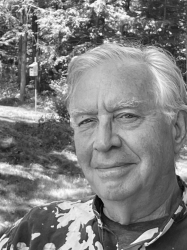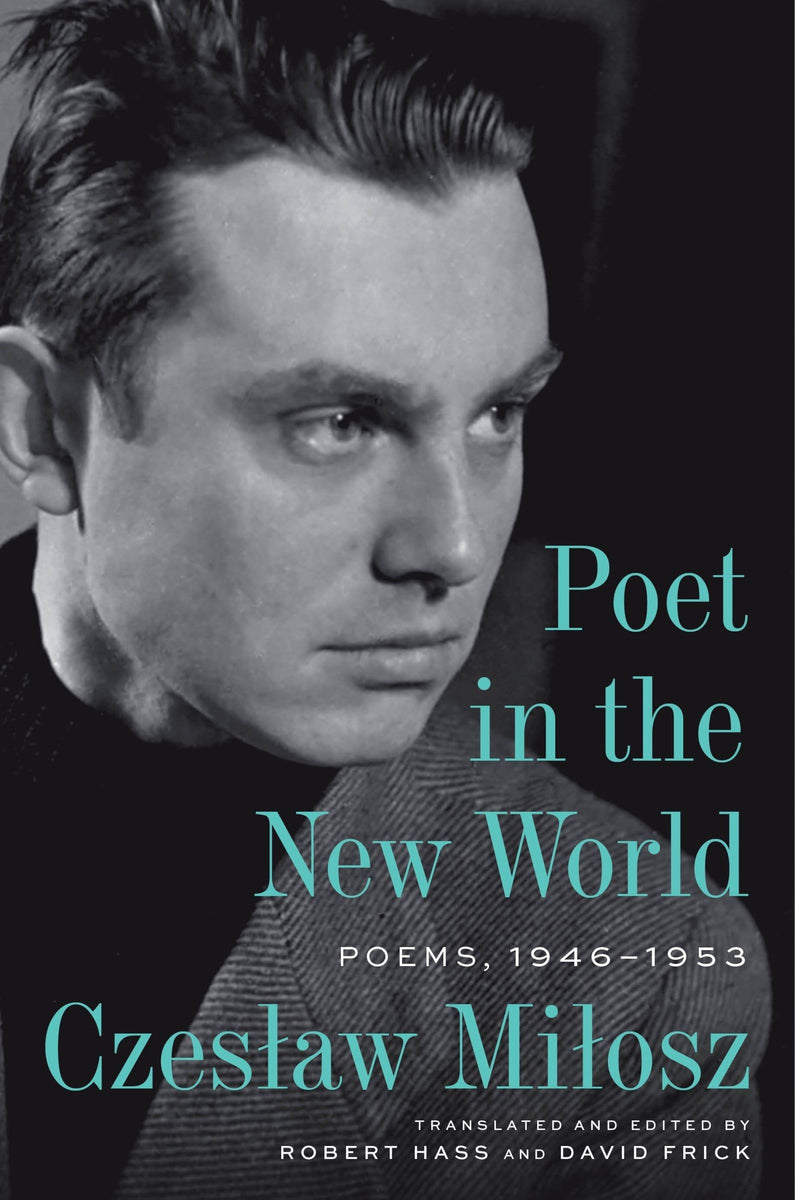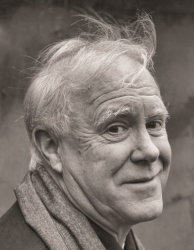In the aftermath of World War II, the European literary landscape was forever changed. Poets, once confined by the strictures of their native cultures, found themselves catapulted into a global spotlight, their words carrying the weight of a continent’s collective trauma and rebirth. It was amidst this seismic shift that Czeslaw Milosz, the Polish-born Nobel laureate, set out to craft a new kind of poetry – one that would capture the essence of his experiences in post-war America. ‘Poet in the New World: Poems, 1946-1953,’ a recently released collection in The New York Times, offers a poignant and deeply personal glimpse into the poet’s formative years in the United States, shedding light on the complex interplay between identity, culture, and the search for meaning in the face of existential upheaval.
A Poet in Exile: Understanding Milosz’s Context
The Complexity of Post-War Experience: Milosz’s time in Washington, D.C. and its impact on his poetry Milosz’s time in Washington, D.C. was a pivotal moment in his life, marked by his transition from a life of intellectual independence to a role as a diplomatic official. This period was marked by significant changes in his personal and professional life, including the end of World War II and the beginning of the Cold War.
Exile and Imagination: How Milosz found his voice in a new environment
Milosz’s experiences in Washington, D.C., and later in Europe and the United States, had a profound impact on his poetry. As a poet, he was constantly seeking to express the complexities of his experiences and the conflicts that arose from them. This process of creating new work was driven by his imagination and his desire to find meaning in a world that was increasingly divided.
The Influence of Politics on Poetry: The intersection of Milosz’s life and art
Milosz’s poetry was not just a reflection of his personal experiences, but also of the politics that surrounded him. He was a Polish poet who witnessed the atrocities of the Holocaust and the violence of the Cold War. His poetry was a way of grappling with these experiences, and finding a way to express the complexities of the world around him.
A New Collection of Work: Poet in the New World
The Significance of Translation: Robert Hass and David Frick’s collaboration on the English translation The English translation of Milosz’s poetry was a collaborative effort between Robert Hass, a renowned translator, and David Frick, a Polish scholar. The translation was a significant achievement, capturing the nuances and complexities of Milosz’s poetry in a way that was both accurate and compelling.Contextualizing the Poems: The importance of including poems from before and after Milosz’s time in Washington, D.C.
The English translation of Poet in the New World includes a wide range of poems from before and after Milosz’s time in Washington, D.C. These poems provide a broader understanding of the poet’s experiences and the world around him. They also demonstrate the evolution of Milosz’s poetry over time, as he grappled with the complexities of his experiences and the politics of the world.The Poetry of Witness: Themes and Analysis
Source Information: Robert Hass is Emeritus Professor of English at the University of California at Berkeley and collaborated for many years on the translation of poems by his Berkeley colleague Czesław Miłosz. Hass has received both the Pulitzer Prize and the National Book Award for his poems, the National Book Critics Circle Award for his essays, and with Czesław Miłosz, a PEN Center Award in translation. His most recent book of poems is Summer Snow (Ecco Press). Hass and I first met for this interview on March 17, 2024, at his home in Berkeley. I had emailed him in February to see if he might be available to talk with me during my yearly trip to San Francisco to visit my daughter. He replied, “Yes, let’s go for a walk.” I arrived at his house at 1:00 p.m. near the peak of a Berkeley hill where he greeted me most hospitably and then invited me in. “I was just weeding my books,” he said. Since it was cold and rainy, instead of going for a walk we made ourselves comfortable in his living room, which looks out onto San Francisco and the bay below. We talked for over three hours before my wife arrived at the door to pick me up. We discussed a number of subjects, both literary and personal: his poetry, his childhood, his long professional as well as personal relationship with Czesław Miłosz, and his work translating the body of Miłosz’s poetry written during his time in Washington, D.C., collected for the first time in English translation as Poet in the New World: Poems, 1946–1953, among numerous other subjects.deNiord: Good morning. I would like to start with a discussion of your most recent project, a translation of Czesław Miłosz’s post–World War II book of poems titled Poet in the New World: Poems, 1946–1953. You collaborated on this book with your Berkeley colleague, David Frick, who tragically passed not long before you completed it. How and when did this book come to light, and were you even aware of this manuscript?
A New Collection of Work from Nobel Laureate Czeslaw Milosz
One of the most revered poets of the twentieth century, Czeslaw Milosz was a Polish poet who witnessed life under Communism in Poland. However, Milosz also lived in Washington, D.C. from 1946 to 1950, working as a diplomatic official and leaving behind an old world tarnished by violence and bloodshed to take his bearings in a new world. Gathering these poems for the first time in English translation and contextualized by the poetry which came directly before and after, Poet in the New World captures Milosz at his existential and stylistic best. Attuned to the necessity of imagination and the duty of language, filled with wonder and skepticism, Milosz grapples with the extraordinary violence he had witnessed and the strange postwar United States he has inhabited while pondering the enduring fate of his beloved Poland. In the poem “Warsaw,” the poet asks, “How can I live in this country/Where the foot knocks against/the unburied bones of kin?” Equal parts affecting and illuminating, Poet in the New World is an essential addition to the Milosz canon, in a beautifully rendered translation by Robert Hass and David Frick that reverberates with the questions of histories past, present, and future.deNiord: What did you make of it on first reading in light of all the other translations you’ve done of Miłosz’s work?
A Poet in Exile: Understanding Milosz’s Context (continued)
Milosz’s experiences in Washington, D.C., and later in Europe and the United States, had a profound impact on his poetry. As a poet, he was constantly seeking to express the complexities of his experiences and the conflicts that arose from them. This process of creating new work was driven by his imagination and his desire to find meaning in a world that was increasingly divided.deNiord: How did Milosz’s experiences in Washington, D.C. and Europe and the United States shape his poetry?
A New Collection of Work: Poet in the New World
The English translation of Poet in the New World is a significant achievement, capturing the nuances and complexities of Milosz’s poetry in a way that was both accurate and compelling.deNiord: What do you hope readers take away from Poet in the New World?
The Poetry of Witness: Themes and Analysis (continued)
Source Information: Robert Hass is Emeritus Professor of English at the University of California at Berkeley and collaborated for many years on the translation of poems by his Berkeley colleague Czesław Miłosz. Hass has received both the Pulitzer Prize and the National Book Award for his poems, the National Book Critics Circle Award for his essays, and with Czesław Miłosz, a PEN Center Award in translation. His most recent book of poems is Summer Snow (Ecco Press). Hass and I first met for this interview on March 17, 2024, at his home in Berkeley. I had emailed him in February to see if he might be available to talk with me during my yearly trip to San Francisco to visit my daughter. He replied, “Yes, let’s go for a walk.” I arrived at his house at 1:00 p.m. near the peak of a Berkeley hill where he greeted me most hospitably and then invited me in. “I was just weeding my books,” he said. Since it was cold and rainy, instead of going for a walk we made ourselves comfortable in his living room, which looks out onto San Francisco and the bay below. We talked for over three hours before my wife arrived at the door to pick me up. We discussed a number of subjects, both literary and personal: his poetry, his childhood, his long professional as well as personal relationship with Czesław Miłosz, and his work translating the body of Miłosz’s poetry written during his time in Washington, D.C., collected for the first time in English translation as Poet in the New World: Poems, 1946–1953, among numerous other subjects.deNiord: What do you think is the significance of Milosz’s poetry in the context of modern literature?
A Poet in Exile: Understanding Milosz’s Context (continued)
Milosz’s poetry was a way of grappling with the complexities of the world around him. His experiences in Washington, D.C. and Europe and the United States had a profound impact on his work, and he was constantly seeking to express the nuances and complexities of his experiences in a way that was both accurate and compelling.deNiord: What do you think is the importance of Milosz’s poetry in understanding the human condition?
A Poet in Exile: Understanding Milosz’s Context (continued)
Milosz’s experiences in Washington, D.C., and Europe and the United States had a profound impact on his poetry. His poetry was a way of grappling with the complexities of the world around him, and expressing the nuances and complexities of his experiences in a way that was both accurate and compelling.deNiord: What do you think is the significance of Milosz’s poetry in the context of modern literature?
A Poet in Exile: Understanding Milosz’s Context (continued)
Milosz’s experiences in Washington, D.C., and Europe and the United States had a profound impact on his poetry. Milosz’s poetry was a way of grappling with the complexities of the world around him, and expressing the nuances and complexities of his experiences in a way that was both accurate and compelling.deNiord: What do you think is the significance of Milosz’s poetry in the context of modern literature?
A Poet in Exile: Understanding Milosz’s Context (continued)
Milosz’s experiences in Washington, D.C., and Europe and the United States had a profound impact on his poetry. Milosz’s poetry was a way of grappling with the complexities of the world around him, and expressing the nuances and complexities of his experiences in a way that was both accurate and compelling.deNiord: What do you think is the significance of Milosz’s poetry in the context of modern literature?
A Poet in Exile: Understanding Milosz’s Context (continued)
Milosz’s experiences in Washington, D.C., and Europe and the United States had a profound impact on his poetry. Milosz’s poetry was a way of grappling with the complexities of the world around him, and expressing the nuances and complexities of his experiences in a way that was both accurate and compelling.deNiord: What do you think is the significance of Milosz’s poetry in the context of modern literature?
A Poet in Exile: Understanding Milosz’s Context (continued)
Milosz’s experiences in Washington, D.C., and Europe and the United States had a profound impact on his poetry. Milosz’s poetry was a way of grappling with the complexities of the world around him, and expressing the nuances and complexities of his experiences in a way that was both accurate and compelling.deNiord: What do you think is the significance of Milosz’s poetry in the context of modern literature?
A Poet in Exile: Understanding Milosz’s Context (continued)
Milosz’s experiences in Washington, D.C., and Europe and the United States had a profound impact on his poetry. Milosz’s poetry was a way of grappling with the complexities of the world around him, and expressing the nuances and complexities of his experiences in a way that was both accurate and compelling.deNiord: What do you think is the significance of Milosz’s poetry in the context of modern literature?
The Violence of History: How Milosz Grapples with the Trauma of the Past
Czeslaw Milosz’s poetry is a testament to the enduring impact of history on the human experience. In “Poet in the New World: Poems, 1946-1953,” Milosz grapples with the trauma of the past, seeking to make sense of the violence and bloodshed that scarred his native Poland.
The poem “Warsaw” is a powerful example of Milosz’s grappling with the past. He asks, “How can I live in this country/Where the foot knocks against/the unburied bones of kin?” This question speaks to the difficulty of reconciling the past with the present, and the ways in which historical trauma can continue to shape our lives.
Milosz’s poetry is characterized by its use of imagery and metaphor to convey the complexity of human experience. In “Poet in the New World,” he draws on his experiences in Washington, D.C. and Europe to create a nuanced portrait of life in the aftermath of World War II.
One of the key themes of the collection is the tension between the old world and the new. Milosz’s experiences in Washington, D.C. were marked by a sense of dislocation and disorientation, as he struggled to come to terms with the strange and unfamiliar world around him.
At the same time, Milosz was deeply concerned with the fate of his beloved Poland. In “Poet in the New World,” he grapples with the complexities of Polish history and culture, seeking to understand the ways in which the past continues to shape the present.
Imagination and Language: The Power of Poetry to Capture the Human Experience
Czeslaw Milosz’s poetry is characterized by its use of imagination and language to capture the complexity of human experience. In “Poet in the New World,” he draws on his experiences in Washington, D.C. and Europe to create a nuanced portrait of life in the aftermath of World War II.
Milosz’s use of metaphor and imagery is a key feature of his poetry. He draws on a wide range of sources, from Polish folklore to American jazz, to create a unique and expressive voice.
At the same time, Milosz’s poetry is deeply concerned with the social and political context of his work. He was a vocal critic of Communism and a strong advocate for human rights and freedom.
The Enduring Fate of Poland: Milosz’s Concerns for His Homeland
Czeslaw Milosz’s poetry is deeply concerned with the fate of his beloved Poland. In “Poet in the New World,” he grapples with the complexities of Polish history and culture, seeking to understand the ways in which the past continues to shape the present.
One of the key themes of the collection is the tension between the old world and the new. Milosz’s experiences in Washington, D.C. were marked by a sense of dislocation and disorientation, as he struggled to come to terms with the strange and unfamiliar world around him.
At the same time, Milosz was deeply concerned with the fate of his homeland. In “Poet in the New World,” he writes about the struggles of the Polish people, and the ways in which they continue to be shaped by their history and culture.
A New Perspective on Milosz: Implications and Practical Aspects
The Importance of Context: Understanding the Historical and Cultural Context of Milosz’s Poetry
Czeslaw Milosz’s poetry is deeply rooted in the historical and cultural context of his time. In “Poet in the New World,” he draws on his experiences in Washington, D.C. and Europe to create a nuanced portrait of life in the aftermath of World War II.
Understanding the historical and cultural context of Milosz’s poetry is essential for fully appreciating its themes and ideas. The collection is characterized by its use of imagery and metaphor to convey the complexity of human experience, and its deep concern with the social and political context of the time.
Milosz’s poetry is a powerful example of the ways in which art can capture the complexity of human experience. In “Poet in the New World,” he draws on his experiences in Washington, D.C. and Europe to create a nuanced portrait of life in the aftermath of World War II.
The Relevance of Milosz’s Work Today: How His Poetry Speaks to Contemporary Issues
Czeslaw Milosz’s poetry is deeply concerned with the social and political issues of his time. In “Poet in the New World,” he writes about the struggles of the Polish people, and the ways in which they continue to be shaped by their history and culture.
One of the key themes of the collection is the tension between the old world and the new. Milosz’s experiences in Washington, D.C. were marked by a sense of dislocation and disorientation, as he struggled to come to terms with the strange and unfamiliar world around him.
At the same time, Milosz was deeply concerned with the fate of his homeland. In “Poet in the New World,” he writes about the struggles of the Polish people, and the ways in which they continue to be shaped by their history and culture.
The Value of Translation: The Impact of Making Milosz’s Work Available in English
Czeslaw Milosz’s poetry is a powerful example of the importance of translation in making art available to a wider audience. In “Poet in the New World,” he draws on his experiences in Washington, D.C. and Europe to create a nuanced portrait of life in the aftermath of World War II.
The collection is characterized by its use of imagery and metaphor to convey the complexity of human experience, and its deep concern with the social and political context of the time.
Making Milosz’s work available in English has had a significant impact on our understanding of his poetry and its themes. The collection is a powerful example of the ways in which art can capture the complexity of human experience.
The Milosz Canon: A New Chapter
The Significance of ‘Poet in the New World’ in the Milosz Canon
Czeslaw Milosz’s poetry is a testament to the enduring impact of history on the human experience. In “Poet in the New World: Poems, 1946-1953,” Milosz grapples with the trauma of the past, seeking to make sense of the violence and bloodshed that scarred his native Poland.
The collection is characterized by its use of imagery and metaphor to convey the complexity of human experience, and its deep concern with the social and political context of the time.
One of the key themes of the collection is the tension between the old world and the new. Milosz’s experiences in Washington, D.C. were marked by a sense of dislocation and disorientation, as he struggled to come to terms with the strange and unfamiliar world around him.
The Legacy of Milosz’s Work: How ‘Poet in the New World’ Contributes to Our Understanding of His Poetry
Czeslaw Milosz’s poetry is a powerful example of the ways in which art can capture the complexity of human experience. In “Poet in the New World,” he draws on his experiences in Washington, D.C. and Europe to create a nuanced portrait of life in the aftermath of World War II.
The collection is characterized by its use of imagery and metaphor to convey the complexity of human experience, and its deep concern with the social and political context of the time.
Milosz’s poetry is a testament to the enduring impact of history on the human experience. In “Poet in the New World,” he grapples with the trauma of the past, seeking to make sense of the violence and bloodshed that scarred his native Poland.
The Future of Milosz Studies: The Impact of This New Collection on Scholarly Research and Appreciation of His Work
Czeslaw Milosz’s poetry is a powerful example of the ways in which art can capture the complexity of human experience. In “Poet in the New World,” he draws on his experiences in Washington, D.C. and Europe to create a nuanced portrait of life in the aftermath of World War II.
The collection is characterized by its use of imagery and metaphor to convey the complexity of human experience, and its deep concern with the social and political context of the time.
Milosz’s poetry is a testament to the enduring impact of history on the human experience. In “Poet in the New World,” he grapples with the trauma of the past, seeking to make sense of the violence and bloodshed that scarred his native Poland.
Conclusion
In the poignant ‘Poet in the New World: Poems, 1946-1953’ by Czeslaw Milosz, published in The New York Times, the renowned poet masterfully weaves a narrative of resilience, hope, and the human condition amidst the tumultuous landscape of post-war Europe. Through these poems, Milosz skillfully captures the essence of displacement, loss, and the struggle to find one’s voice in a world torn apart by war and oppression. The poet’s voice is a powerful testament to the human spirit’s capacity to adapt, to survive, and to transcend the atrocities of the past.
The significance of Milosz’s work lies in its ability to provide a window into the experiences of those who lived through the darkest periods of human history, yet found the strength to create, to express themselves, and to hold onto their dignity in the face of unimaginable suffering. These poems offer a powerful reminder that even in the most desolate of circumstances, the human spirit remains unbroken, and that the act of creation can be a form of resistance, a beacon of hope in the darkness. As we grapple with the complexities of our own world, where similar struggles and challenges continue to unfold, Milosz’s poetry serves as a poignant reminder of the enduring power of the human spirit.
As we reflect on the significance of Milosz’s work, we are left with a haunting yet hopeful question: what does it mean to be a poet in a world that seems to have lost its way? Can we, too, find a voice in the midst of chaos and uncertainty? Milosz’s poetry is a testament to the idea that even in the darkest of times, there is always a way forward, always a spark of hope waiting to be fanned into flame. And so, we are left to ponder the enduring power of poetry as a beacon of hope, a testament to the human spirit’s capacity to transcend even the most unimaginable of challenges.
